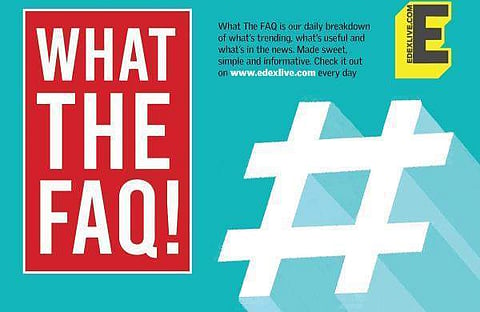

It's been seven years since the Supreme Court of India declared transgender individuals as the third gender. The apex court also suggested possible steps that the government could adopt for the welfare of the community. Today, we tell you what the NALSA judgement was all about and why it is called a landmark decision.
What is NALSA?
The National Legal Services Authority of India (NALSA) was the primary petitioner in the case. The body gives legal services to the disadvantaged sections of society free of cost. A two-judge bench of Justice KS Panicker Radhakrishnan and Justice Arjan Kumar Sikri heard the case.
What did the judges say?
Along with recognising the third gender, the Court also highlighted that every fundamental right is available to the third gender just as they are to the cisgender individuals — males and females. Not recognising the third gender in any criminal or civil statutes was to be considered discriminatory. The Court said that they would prefer to judge the psyche of the person rather than a biological test — what gender you associate to is your gender. Forcing Sex Reassignment Surgery (SRS) to change someone's gender is illegal. Both the Centre and state governments were asked to put measures in place to make sure that transgenders received proper medical attention in hospitals. It also spoke about the need for separate public toilets among other facilities. The governments were supposed to come up with separate HIV/Sero surveillance for the transgender community. The government was asked to come up with a set of welfare schemes for the community and also help them become a part of the society and not just remain as outcasts.
Was it implemented properly?
“Seldom, our society realises or cares to realise the trauma, agony and pain which the members of transgender community undergo, nor appreciates the innate feelings of the members of the transgender community, especially of those whose mind and body disown their biological sex," said Justice Radhakrishnan. But the members of the community have time and again highlighted that even though the NALSA judgement was a landmark move, it was not implemented by the centre of the state government. The Transgender Persons (Protection of Rights) Act, 2019 was criticised heavily by activists and trans individuals. They have also highlighted, time and again, that even though there are various welfare associations for the community at the state level and at the centre, they are not functioning properly.
What is the latest development?
The Supreme Court on April 12, 2021, asked for responses from the Centre and State governments on a petition seeking direction to establish a Transgender Welfare Board to address the social welfare issues of transgenders. A Bench headed by Chief Justice of India, SA Bobde issued notice to the Central and State governments on the plea filed by Kinner Maa Ek Samajik Sanstha Trust and asked them to file affidavits stating their stand. The plea also sought direction to appoint a standing committee comprising Station House Officers (SHO) and human rights and social activists to promptly investigate reports of gross abuses by the police against transgenders. "Transgender people should be treated with the same dignity and respect as anyone else and be able to live and be respected, according to their gender identity, but these people often face serious discrimination and mistreatment at work, school, and in their families and communities," stated the plea. The petition said that transgender people are deprived of social and cultural participation and hence they have restricted access to education, health care and public places which further deprives them of the Constitutional guarantee of equality before the law and equal protection of laws. "The community is facing neglect, isolation, insult, social ostracisation are due to trans prejudice that runs deeps in the society and transgenders are still considered untouchable in India," the plea added.
